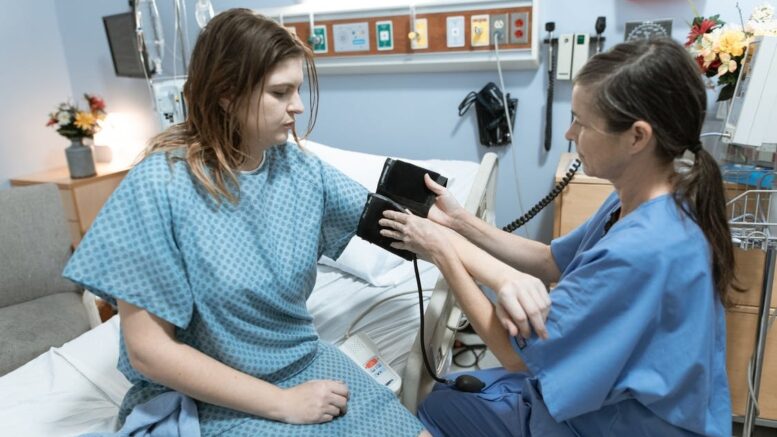Nurses play a key role in creating awareness among people for better health outcomes. Nobody spends more time with patients than nurses, so they know exactly what patients need. This allows nurses to guide them accordingly as per their medical condition and needs. Patients have to look after themselves after getting discharged from the hospital. That is why nurses have to take the right steps to educate patients to make the right health precautions. Nobody understands the psyche of patients better than nurses, allowing them to develop a strong bond with patients. It enables nurses to understand their issues closely and make recommendations accordingly.
Nurses are liable to motivate patients to opt for a healthy lifestyle. From consuming a healthy diet to exercising regularly, they have to encourage patients to make healthy habits an integral part of their lives. It keeps their mind and body in perfect shape and improves their immune system to fight different types of diseases. Eventually, it allows patients to improve their health and start living healthily. Without further ado, let’s find out how nurses can improve health literacy in patients.
Prioritize High-level Education
In order to improve health literacy in patients, nurses need to go for top-level qualifications. With a solid educational background, nurses can add real value to the life of patients by guiding them correctly according to their medical issues. As a full-time RN (registered nurse), it can be difficult for you to pursue further studies.
So, if you want to attain a master’s degree in FNP (family nurse practitioner), you can opt for a bridge program like RN to FNP. It can save your effort, time, and money as a registered nurse to efficiently earn a master’s degree. Also, you can leverage distance learning opportunities on the internet as it will help you manage your schedule with ease.
As a nurse, acquiring a relevant and high-level degree can help you make the right calls to improve health literacy. For example, higher qualifications make you eligible for the top positions, such as a nursing manager. Having an authoritative position allows you to create effective policies to improve patient education in healthcare organizations.
Understand Learning Capabilities of Patients
To educate patients, nurses first need to assess their learning capabilities to know whether they can handle self-care or not. It gives nurses a clear idea of whether patients can take medical precautions after leaving the medical supervision or not. As a nurse, you can develop a strong bond with patients to analyze their learning limitations. Also, it will help patients to get comfortable with you and share their medical concerns without any hesitation.
Another thing you should know is the language in which a patient is comfortable. If there is a language barrier, you need to take the right steps to ensure that patients understand the guidelines clearly. In some cases, patients cannot read the written text, so you need to have a backup plan to make them understand the medical guidelines.

Customize your Teaching Strategies
As already explained above, you need to understand the learning capabilities of each patient. It means that the level of understanding of every individual is different, so you need to change your education methods accordingly. Every patient learns at their own pace, so you have to adjust your teaching style according to their needs.
When you are familiar with the patient’s learning style, it will be easier for you to customize your teaching methods. Nurses have to try different methods to improve health literacy. For example, creating educational content in the form of videos for patients dealing with a specific medical condition can be effective.
Another thing that nurses do to innovate their teaching strategies is to provide sufficient resources of medical information to the patients. Some patients may not understand video content very well, so nurses can create a manual having written instructions for their medical issues. It allows patients to review the medical procedures anytime to take necessary measures.
Simplify the Medical Terminologies
There are many complex medical terms that patients cannot understand easily. Nurses have to play an important role in this regard to clearly explain the meaning of complex medical terminology to the patients. You can rephrase such terms so that patients can understand and memorize them. Whether it is a health precaution or anything related to medication, you must ensure that patients have got your point clearly.
When patients are about to get discharged, nurses should ask them whether they have understood everything clearly or not. You may test them by asking the meaning of different medical terms. Also, you have to ensure that they know their medication schedule along with other necessary information. You will be relieved that patients have a clear understanding of their medical guidelines by doing this.
Involve Family Members
When patients are out of the healthcare facility, a huge responsibility lies on their family members. Therefore, nurses need to involve the family members of the patients in the learning procedure. You have to share the necessary information with the families you have already provided to the patients. It is important to understand that patients share a strong emotional bond with their loved ones. So, a spouse, siblings, or parents of patients can ensure they follow the necessary health practices at home. If patients show negligence or carelessness, their family members can help them get back on track. That is why involving family members of patients is crucial for improving health literacy.

Choose the Right Time
One of the key factors to improving health literacy is to pick the right time as per the patient’s needs. As a nurse, you should know which time will be appropriate to have a discussion with patients. For example, you need to choose the timings when there are no medical examinations or diagnostic check ups scheduled.
Conclusion
Improving health literacy is not an overnight process. First, nurses have to upskill themselves by opting for high-level qualifications. It will enable nurses to transfer that knowledge effectively to the patients, encouraging them to adopt healthy habits in their lifestyle. Eventually, it will increase the credibility and professional worth of the nurses in the healthcare landscape that will help them accomplish their career goals.
